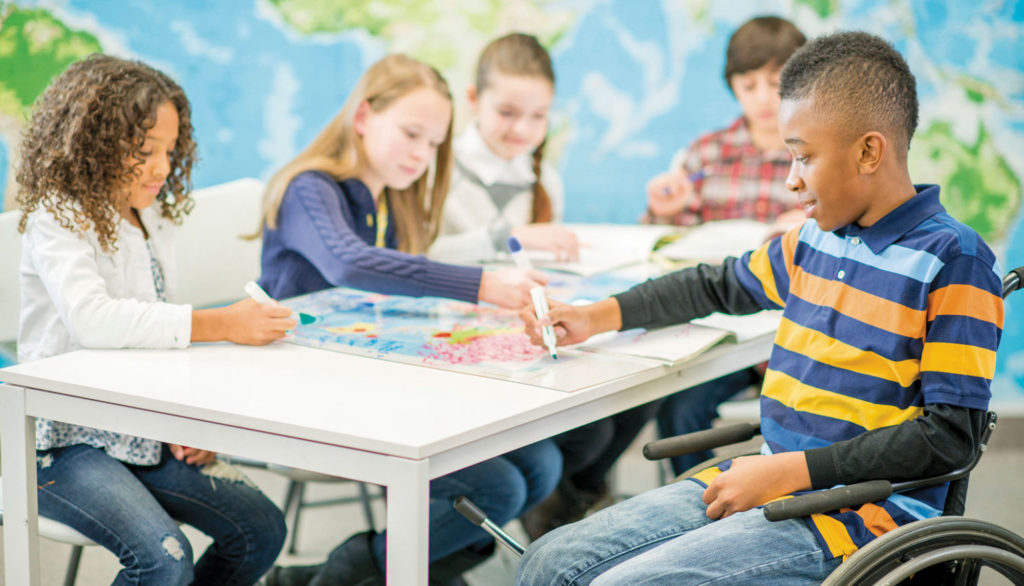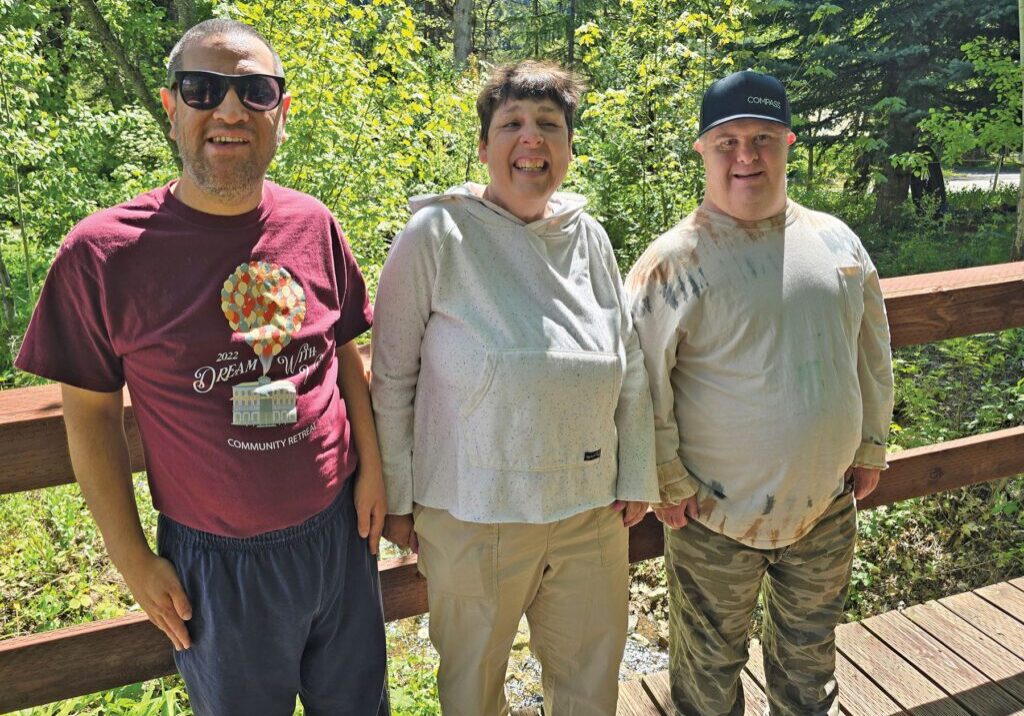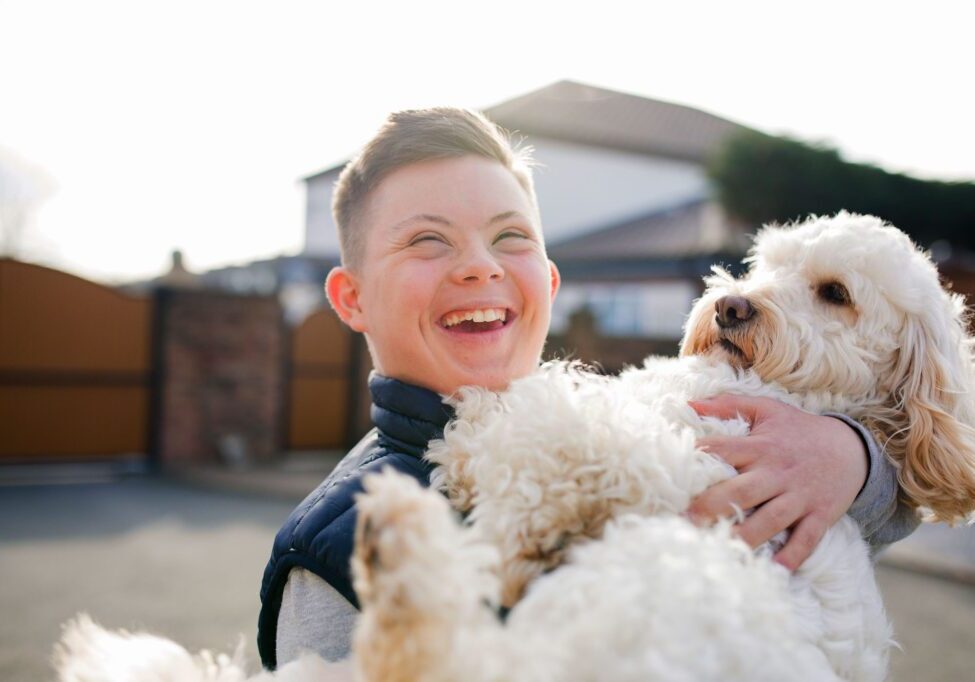The language revolving around disability can be a contentious issue. Words that were considered progressive only a few years ago are now deemed rude or politically incorrect. With the ever-changing definition of what’s appropriate and what is not, there doesn’t seem to be a clear consensus on what is acceptable.
It will always be impossible to satisfy everyone, but there are ways to navigate disability language safely and respectfully. One of the first things you can do is start recognizing words that may be commonplace but are actually disrespectful and detrimental to the disabled community.

Stop using outdated and offensive words
Many outdated, offensive words that are still thrown around today are considered derogatory slurs against people with certain disabilities. These are just a few examples of terms people with disabilities wish could be eradicated from our vernacular.
- Retarded (or retard)
- Imbecile
- Lame
- Midget
- Short-bus
- Cripple
- Gimp
- Deaf and dumb
- Harelip
- Deformed
- Birth defect
- Mongoloid
- Feeble-Minded
Many of these terms, such as “imbecile,” “mongoloid,” and “feeble-minded,” were once commonly accepted clinical descriptions for various disabilities. Although they weren’t considered insults at the time, they still carry prejudices towards the people those terms represented. Today, they are considered outdated and offensive.
Should we use the term “special needs” or not?
Some words and phrases we use today may seem innocuous, but they are considered insulting depending on who you talk to. The term “special needs” is just one example.
There is an ongoing debate in the disability community whether or not we should continue using the term “special needs.” Special needs is a widely used phrase that refers to people with intellectual, learning, or developmental disabilities but it can mean any person with a disability.
It’s not clear where the term “special needs” originated, but it became popular in the United States during a push for special needs education to serve children with all types of disabilities. It has become common in the last few decades, virtually replacing the word “handicapped.”
Many disability advocates believe that we should do away with the euphemistic phrase and not be afraid to say, “disabled” or “disability.” Some find it a vague and ill-defined term or see the use of the word “special” as somewhat patronizing in this case. There are also very few adults who refer to themselves as having “special needs.”
Respect personal preference
The National Center on Disability and Journalism recommends against using the term “special needs,” stating that the word “disabled” is acceptable in most contexts. It also emphasizes respecting personal preference since many people don’t have an issue with the phrase.
Person-first or identity-first language?
The question of how we define ourselves, and others, is a complicated subject for anyone, and people with disabilities are no exception. For example, should we say that someone is disabled? Or that they have a disability?
Using person-first when speaking about disability started in the 1970s. It meant to empower people by emphasizing individuality and recognizing them as people separate from their condition. For example, instead of saying, “the dyslexic kid,” we would say, “the kid who has dyslexia.” Likewise, an “autistic adult” would be “ an adult with autism.” However, not everyone agrees with this concept.
Those who prefer identity-first language feel that their disability is an integral part of their identity. Although person-first language is intended to promote respect, many advocates feel that it implies disability is something to be ashamed of.
Important things to know about disability language
Disability language is constantly evolving, as disabled people’s understanding of themselves and their place in society changes. It’s understandably hard to keep up with it all.
Many people don’t take the time to educate themselves on disability language because it’s simply not on their radar. Most likely, they don’t have anyone with a disability in their life, and they’re unaware that their choice of words may be offensive to some.
Educate yourself — just ask
If you do choose to educate yourself on disability language, there is one thing you should always avoid. Non-disabled people should NEVER lecture people with disabilities on correct terminology. More insulting than many of those disparaging slurs is someone who has never experienced being disabled trying to explain to a disabled person why their preferred way of talking about themselves is wrong.
One of the most important things to realize about disability language is that it comes down to personal preference. So many people avoid conversations with people with disabilities because they’re afraid of saying the wrong thing or unintentionally saying something offensive.
Fear and avoidance can cause a lot of missed opportunities for connection and inclusion. Many people with disabilities welcome the opportunity to educate and advocate, so just ask if you aren’t sure.
Posted in: Special Needs
Comment Policy: All viewpoints are welcome, but comments should remain relevant. Personal attacks, profanity, and aggressive behavior are not allowed. No spam, advertising, or promoting of products/services. Please, only use your real name and limit the amount of links submitted in your comment.
You Might Also Like...

COMPASS Offers Innovative Services for Adults with Disabilities
Living independently presents numerous challenges for adults with disabilities, including the management of medications, therapies and medical equipment, as well as navigating limited mobility, transportation barriers and safety concerns. The […]

Everybody Is A Genius
“Everybody is a genius. But if you judge a fish by its ability to climb a tree, it will live its whole life believing that it is stupid.” ~ Albert […]

Understanding Neurodiversity
Neurodiversity is a term that has gained significant traction in recent years, but its meaning and implications are often misunderstood. At its core, neurodiversity refers to the natural variation in […]

Common Myths and Misunderstandings About ADHD
Myths About ADHD When I tell people my son has ADHD, or attention deficit hyperactivity disorder, I usually get polite nods or “I have that too. I could never pay […]




